Kapital Creation: A Beijing State of Mind
An upcoming film explores the juxtaposition of unbridled economic development and burgeoning creativity in the city


Urbanization is a major global issue, but nowhere more pressing and extreme than in China. The country’s urban population is expected to hit one billion over the next decade, according to the World Bank. Alongside unprecedented economic development and resource consumption, China has come under fire for its treatment of individuals in light of purported gains for the collective good—including issues around equity and its treatment of dissidents, most notably those in the creative class. NYC-based filmmaker Matthew Niederhauser’s upcoming film “Kapital Creation: A Beijing State of Mind” explores this development in Beijing in juxtaposition with the flourishing (if, at times, stifled) creative class in the cosmopolitan city. Having studied the Mandarin language and Chinese history, politics and culture for much of his adult life, Niederhauser combines his expertise with his adept photographic eye to give life to these issues and the individuals at their epicenter. We spoke with the filmmaker and discussed some of the challenges of shooting in Beijing, as well as what the city’s transformation means for its residents and—indeed—the world.
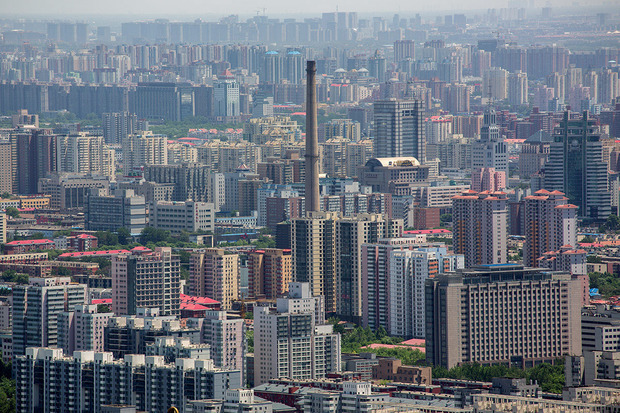
What spurred your interest in China?
I was very fortunate to be given the opportunity to study Mandarin in high school. My first Mandarin teacher was amazing and got me hooked on China’s historical, religious and philosophical traditions—really expanded my horizons. This led to my first trip to China, where I lived with a host family in Beijing from 2000 to 2001. That year I also traversed Asia for the first time, traveling from Beijing to Delhi overland via Tibet where I met up with [filmmaking partner] John Fitzgerald to head into the Himalayas. We’ve traveled to some rather extreme places before. Soon after I commenced my studies at Columbia University in the East Asian Languages and Cultures department, during which I returned to China several more times. After graduating in 2006, I spent time at the National Committee for United States-China Relations and the International Center for Photography before ditching New York City for Beijing to start working on my own.
How did you start shooting in China?
My background is mainly in photojournalism. I returned to Beijing in 2007 to document the city leading up to and through the 2008 Olympics. Around that time I also got heavily involved in the emerging underground music—resulting in my first book “Sound Kapital.” That’s what really kept me in Beijing: Exploring all of these amazing outlier creative communities in a wildly mutating urban landscape.
Over the next few years my images started appearing in The New Yorker, Wired, the Guardian, New York Times Magazine, Foreign Policy and Time Magazine, amongst many others. My entry into filmmaking began with the Canon 5D Mark II, like many other photographer converts. All of a sudden, one of my cameras could take amazing HD footage. I eventually shot a few video pieces for The New York Times alongside other small projects. “Kapital Creation: A Beijing State of Mind” is my first attempt at a full-length documentary. It was going to be a huge challenge, so I enlisted the help of one of my best friends from high school, John Fitzgerald, to shoot it with me. John is a critically acclaimed director and cinematographer based in New York City and Rio de Janeiro. He brought fresh eyes to my extensive knowledge of Beijing as well as a wealth of production knowledge. We work very closely together.
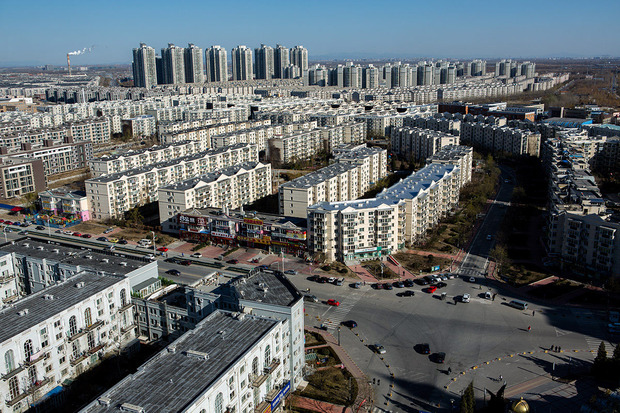
Development, especially in Chinese cities is such convoluted issue. What inspired you to take on such a large-scale topic in Beijing?
Beijing is known for eliciting a love/hate relationship. It is China’s creative epicenter with some of the best music, art, design and architecture—past and present—the country has to offer. China’s top universities also call the capital their home, along with the core of the diplomatic, NGO and journalist communities. At the same time, you also face harrowing traffic, fierce pollution and rising social inequity. It’s an extremely complex place, but even when I side more on the hate in the relationship, I can’t ignore it. What is happening in the capital right now is going to influence the rest of China and thereby the planet. Beijing’s future is inextricably intertwined with the economic and environmental fate of the world.
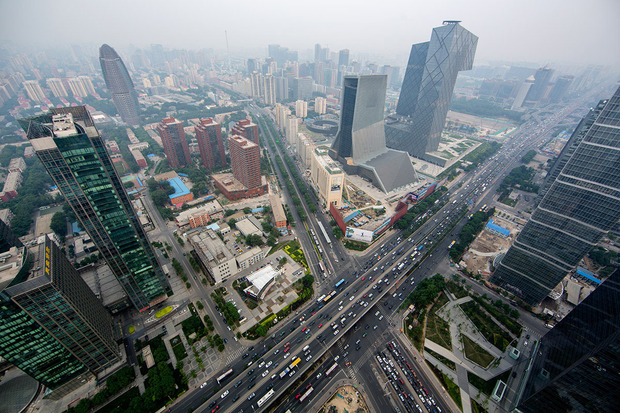
Were there production challenges unique to shooting in such a major Chinese city?
There are many difficulties to shooting in Beijing—most of which you would encounter in any other foreign country. Speaking Mandarin is almost a must, and my greatest asset in making the film. I am not completely fluent, but certainly good enough to conduct interviews and navigate the city with ease. It’s an amazingly dynamic place, with a medieval imperial core being enveloped at a breakneck pace by its infrastructure development. I also encounter a reasonable amount of anxiety from people about going on record for a film delving into urban problems and their effect on creative expression. I am trying to approach this as sensitively as possible. It’s not about deploring a doomed situation, but exploring issues that can make people think more imaginatively and positively about the city. Beijing is a wonderful place, but right now is beset by a myriad of challenges.
The Chinese government’s treatment of artists and dissidents continues to draw international attention. How does this play out within the country?
It is impossible to deny that creative classes in Beijing are stifled by the Chinese state. People have a keen sense for the limits of acceptable expression and critique. At the same time, those limits are changing every day, especially because of the internet and other emerging public forums for dialogue. The Chinese state has lost its ability to absolutely control media and how people access information. Their tactics now focus on guiding public opinion and cracking down only when they see absolutely necessary. These crackdowns can sometimes appear arbitrary, which also leads to greater fear and self-censorship. At the end of the day though, creative classes are still on the rise. People are breaking down barriers everywhere. When I first lived in Beijing in 2000, there was no way I could ever imagine how much would change with regards to life in the city and the rise of the arts.
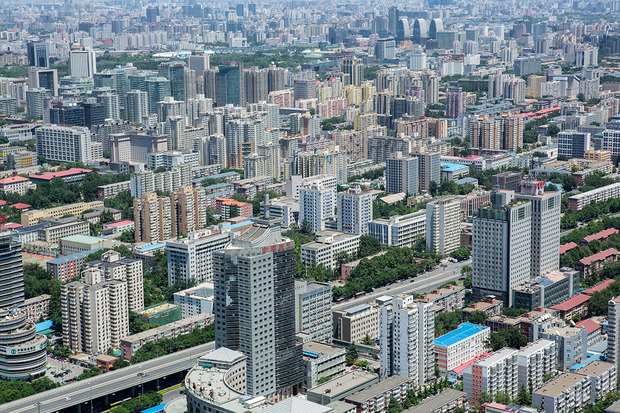
What does the future hold for China in your opinion?
Anybody who offers a prognosis for the future of China should be taken with a grain of salt; it is impossible to describe the country as a monolith. There are 1.4 billion people in China, and the regional diversity varies greatly. Every province faces its own set of unique problems and needs. All the same, the rise of a new Beijing also comes with greater ramifications for the entire planet.
The capital is often regarded as a model to be imitated by the rest of the China. “Kapital Creation” thus examines the formation of a Beijing that is supposed to be an archetype for political lingo that promotes “modern” and “civilized” lifestyles that give rise to “harmonious” municipalities. An additional 350 million people are expected to move into cities across China by 2025, pushing the overall urban population to over a billion. It is undoubtedly the largest infrastructure buildout in the history of mankind. The Beijing that “Kapital Creation” examines represents the first wave of a new China that potentially faces natural resource depletion, exponentially higher energy use and crippling pollution. China will be forced to lean on an already overburdened world in order to sustain the sheer immensity of such development, especially with Beijing setting such a precedent.
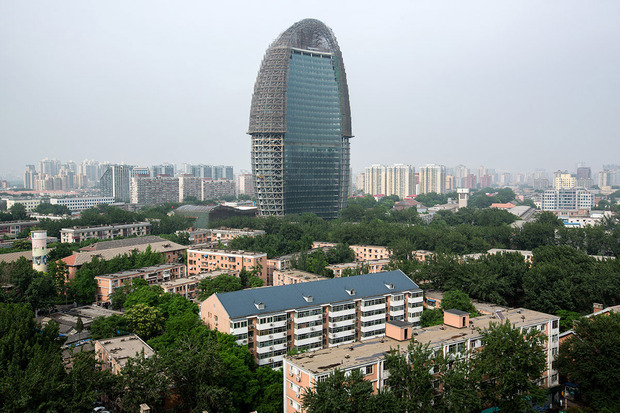
What does this film mean to you personally?
The film is my homage to the city I lived in for the past six years. Beijing is an amazing place, but undergoing dramatic change. This is my take on how the mutating urban landscape is affecting artists, musicians, architects and writers; how they in turn are trying to create the possibility of a different future through their work. It’s been very exciting to shoot thus far, but John [Fitzgerald] and I still need to cover one more round of production this spring along with a host of other post-production costs.
“Kapital Creation: A Beijing State of Mind” is currently funding on Kickstarter. Prints of Niederhauser’s acclaimed photos, such as those shown above, are on offer for supporters of the film.
Images courtesy of Matthew Niederhauser












